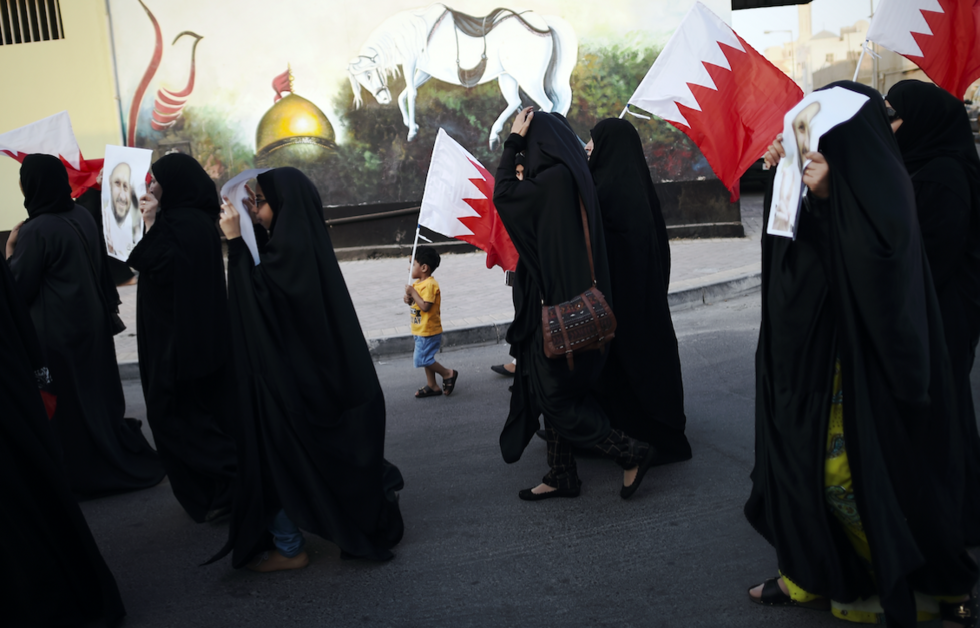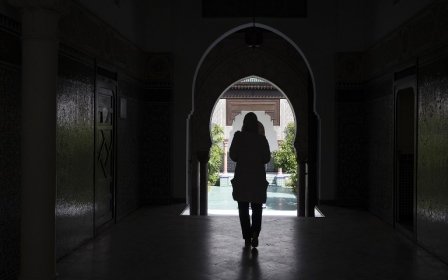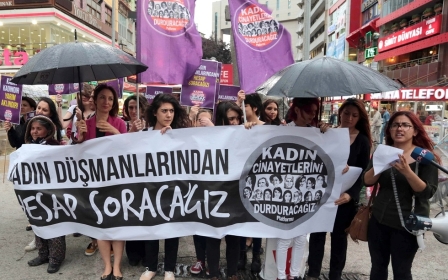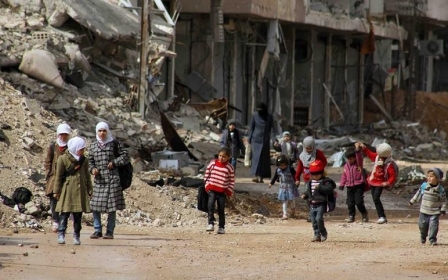Women's groups accuse Bahrain of cutting funds on political grounds

MANAMA - Maryam Mansoor left her husband after years of domestic abuse, but with no support struggled to provide for her five children by selling flowers on the streets of Manama. She had few places to turn and her self-confidence eroded.
That all began to change when the 35-year-old started visiting a women’s charity for weekly counselling and support from a social worker - help that made her feel like she could start living a normal life.
But three months ago, the sessions stopped.
Devastated by government funding cuts that were brought in earlier this year, her counsellor said she could bear no more and quit. The charity which provided the support, al-Nahda Bahrain, is now considering closing doors entirely, meaning the loss of help to hundreds of abused and vulnerable Bahraini women.
“My husband has not supported his family for eight months and we have no other means of income,” Mansour told Middle East Eye. “I used to get emotional and psychological support but now I don’t have money to visit private centres.
“The time I spent there made me feel comfortable and gave me hope but I am beginning to feel that there is no hope for me anymore.”
Al-Nahda Bahrain is one of 13 women’s rights groups in Bahrain's Women’s Union, which has been ravaged by funding cuts. Five other NGOs, which deal with issues including professional development and corruption, have all been hit. Civil society workers say the cuts are a targeted political attack on their work.
"We believe it is an attempt to take revenge because we have issued the shadow report [critical of the government]. There are four prominent journalists who support the regime who have called for the government to close our headquarters,” a senior source from the Women’s Union, told MEE on the condition of anonymity.
The source said that they believed the funding cuts were linked to a damning report on women’s rights that the Women’s Union submitted to the UN in 2014, as well as the fact that many of the organisation's members took part in protests against Bahrain's ruling family.
Government sources told MEE the cuts were part of wider austerity measures enacted in the wake of last year’s oil price collapse, which put great pressure on Bahrain’s finances. Activists, however, say they have seen this tactic used against them time and again.
Many civil society groups have already been left reeling following the government’s clampdown on foreign funding in 2013, which followed the 2011 uprising against the royal family. Bahrain insists that all foreign funding transfers are approved by authorities - meaning the vast majority are outright denied or take many months to appear.
Anyone breaching the foreign funding rules faces up to six months in jail.
With resources drained and few places to turn for cash, the latest round of cuts risk being the final straw.
Huda Mahmood, a member of the Bahrain Sociologists Society, which has had its state funding cut, told MEE that the society would be forced to “declare bankruptcy if the governments did not bail them out”.
“We need financial support more than ever,” Mahmood said.
Transparency International, an anti-corruption watchdog, has likewise seen project funding stripped. In February, its president in Bahrain, Abdel Nabi al-Akri, resigned due to the funding shortfall after his organisation saw almost 50 percent of its revenue pulled.
Victims bare the brunt of cuts
But victims of abuse are being the brunt of the cuts.
Om Fatima is one of the hundreds of women who has lost the union’s legal support since funding was slashed.
With her husband now in jail on drug charges, Fatima says she has been working late into the night cooking at a restaurant just to earn enough to buy bread for her children. She says that with her finances so tight, getting a lawyer to help her secure a divorce is simply out of the question.
“I want a divorce so I can start a new life but I cannot initiate the process,” she said. “I have no lawyer and it is very likely that I might lose the lawsuit.”
Attorney Shahzalan Khamees told MEE that she was forced to quit her job with the women’s union after the justice minister reneged on promises earlier this year to bail the group out.
“Due to the financial crisis, we have been unable to continue the necessary legal work advocating the cases of violated Bahraini women,” Khamees said.
“Now we only accept very important cases where the woman is in extreme danger and is [subjected to] sexual harassment and physical abuse. As for the rest, we’re trying to negotiate with other attorneys to accept to be paid in instalments.”
Despite Bahrain's modern capital, many residents live in relative poverty. The average income for Bahrainis working in the private sector is 358 Bahraini dinars ($1,000) a month - barely enough to cover basic needs in a country where accommodation, transport and food costs can be oppressively high.
The cash crisis has prompted many NGOs to renew calls for foreign funding. The women’s union secretary general Iman al-Asfoor has led the charge, asking the American embassy for help.
While she secured funding, she says the authorities blocked the money from being transferred and have vowed to stay firm. Sources at the American embassy said they were keen to do more but that Bahraini authorities were refusing to budge.
"The government will not allow foreign money to be used to help the emergence of radical groups within the state,” a Bahraini government official told MEE.
"The government will try to offer compensation to organisations with local subsidies but with the current austerity measures, we will require time to process this and the associations will have to wait.”
People like Mansoor will have to fall on the mercy of an ever-shrinking number of NGOs just to try to get by.
And while she says she may be able to get economic support, without psychological assistance, she fears her trauma will harm her children.
Middle East Eye propose une couverture et une analyse indépendantes et incomparables du Moyen-Orient, de l’Afrique du Nord et d’autres régions du monde. Pour en savoir plus sur la reprise de ce contenu et les frais qui s’appliquent, veuillez remplir ce formulaire [en anglais]. Pour en savoir plus sur MEE, cliquez ici [en anglais].




